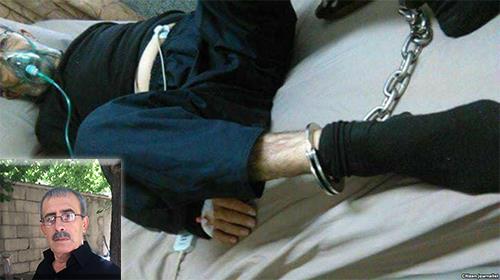The Iranian regime's futile war against the internet
Iranian regime officials admit their defeat in censuring internet services
On January 21st, Iranian regime president Hassan Rouhani admitted to Tehran’s failure in filtering the cyberspace. He did not even get close to criticizing the filtering efforts in their merits. He just said that they were not successful:
"Well, we were unsuccessful in some of our efforts in recent years," he said. "We thought it is under our control. We thought it would be filtered if we just ordered so…. What should we do with VPNs?"
Virtual private networks (VPN) are tools that allow internet users to circumvent the censorship of internet services and also prevent surveillance and monitoring of online activities. VPN services are especially popular in Iran, where the ruling regime is trying to impose heavy restrictions on access to foreign media and social networks.
Rouhani was not the only official speaking of the regime's efforts against free flow of information in cyberspace. Four days earlier, Ahmad Khatami, the spokesman for the board of directors of Assembly of Experts, said that in their latest session, "everyone agreed that the damages inflicted by the cyberspace was serious."
On the same day, the Assembly of Experts issued a statement saying that "the Ministry of Communications, the High Council of Cyberspace, and all related institutions should actively engage in establishing order in the cyberspace and confront the unethical issues and psychological warfare by the enemy, and take serious steps in monitoring and confronting the opposition and unethical networks."
This needs translation. The word "unethical" can be just removed to make the statement more comprehensible. It is used by the regime to divert attention. "Establishing order" as vague as it sounds, refers to specific actions. Only one day later, Ali Movahedi Kermani, the regime’s Friday Prayer Leader in Tehran, further elaborated on that. He used sentences that were identical to those used by the statement by the Assembly of Experts, leaving no doubt that he was briefed by the same text, and he only changed two phrases making the regime's plans very clear. He said (The underlined words are identically the same as the statement): "the Ministry of Communications, the High Council of Cyberspace, should actively confront (instead of "engage in establishing order in") the cyberspace and confront the unethical issues and psychological warfare by the enemy,… and take serious steps in monitoring and confronting the opposition and unethical networks in order to localize the internet and strengthen the domestic information network."
In case there is any doubt about the nature of the "localization" of the internet and the "domestic information network," one could refer to the press conference by the U.S. representative office of the National Council of Resistance introducing the book "Iran: Cyber Repression." After the conference, Google decided to remove the applications developed by the Iranian regime from its Play Store. Subsequently, in separate campaigns, Twitter and Facebook identified and closed thousands of accounts controlled by the regime's "Cyber Army", and Telegram revealed efforts by the regime to acquire information on the user accounts from that company.
Given the Iranian regime’s terrible track record, it is very meaningful when its officials talk about failure in blocking or controlling the cyberspace. This is not a failure in the first battle. It is the end of a series of expensive endeavors. So as much as it is some good news, it alarms us to try and identify, expose, and counter new tactics by the regime.




Comments
Post a Comment